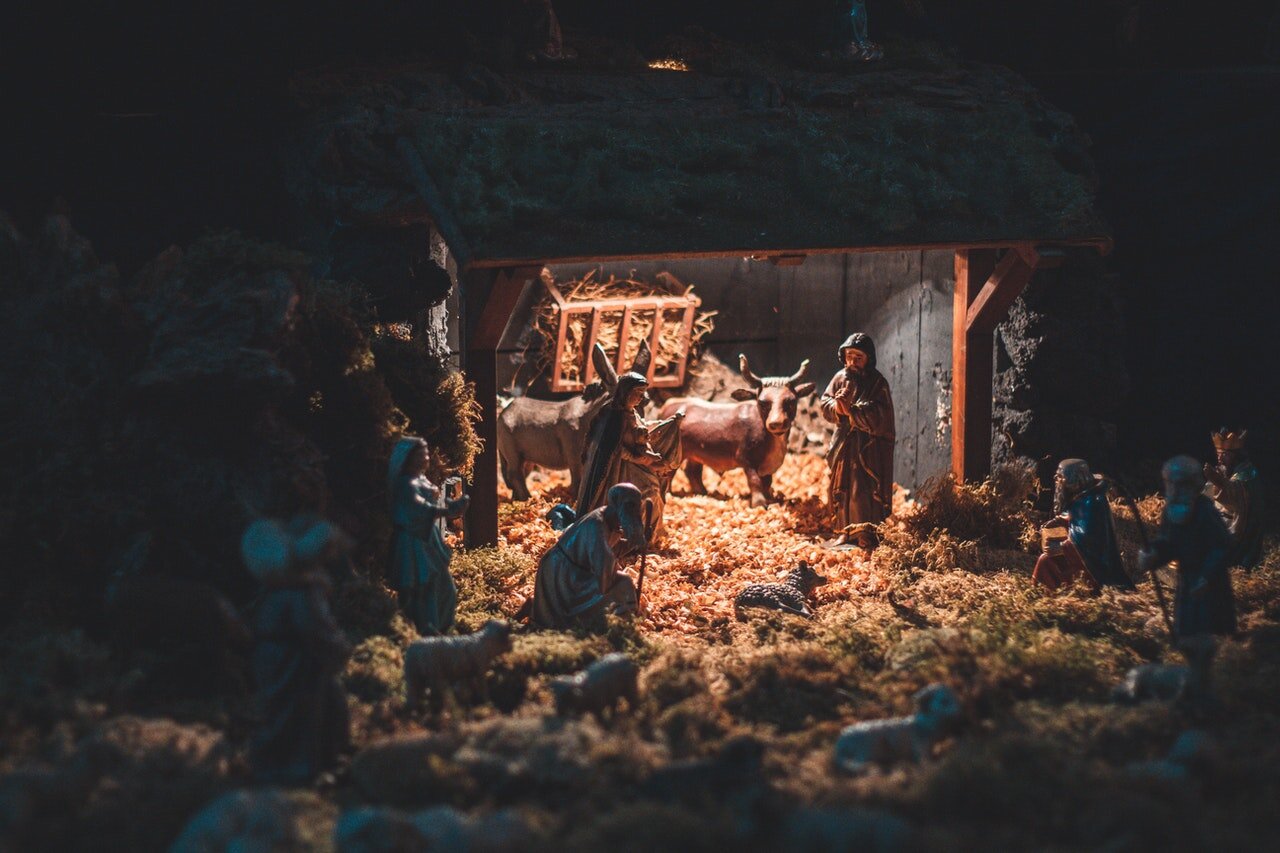by Fr. Bill Garrison
Please note that the following sermon text was provided prior to the audio recording. The two versions may differ substantially.
Jesus decided to go to Galilee. He found Philip and said to him, “Follow me.” Now Philip was from Bethsaida, the city of Andrew and Peter. Philip found Nathanael and said to him, “We have found him about whom Moses in the law and also the prophets wrote, Jesus son of Joseph from Nazareth.” Nathanael said to him, “Can anything good come out of Nazareth?” Philip said to him, “Come and see.” When Jesus saw Nathanael coming toward him, he said of him, “Here is truly an Israelite in whom there is no deceit!” Nathanael asked him, “Where did you get to know me?” Jesus answered, “I saw you under the fig tree before Philip called you.” Nathanael replied, “Rabbi, you are the Son of God! You are the King of Israel!” Jesus answered, “Do you believe because I told you that I saw you under the fig tree? You will see greater things than these.” And he said to him, “Very truly, I tell you, you will see heaven opened and the angels of God ascending and descending upon the Son of Man.”
—John 1:43-51 (NRSV)
I watch the news these days as I imagine do most of you. I can’t seem to take my eyes off the news channels. I would like to but I can’t seem to. They say people experience the same thing at train wrecks. And I have never seen so many experts on television before. Have you noticed? Know-it-alls are everywhere we look and they seem to be shouting at the top of their lungs. So, there is a little story I have always wanted tell and this Sunday seems like the perfect time to tell it.
A small-town prosecuting attorney called his first witness to the stand in a trial--a grandmotherly, elderly woman. He approached her and asked, “Mrs. Jones, do you know me?”
She responded, “Why, yes, I do know you Mr. Williams. I've known you since you were a young boy. And frankly, you've been a big disappointment to me. You lie, you cheat on your wife, you manipulate people and talk about them behind their backs. You think you're a rising big shot when you haven't the brains to realize you never will amount to anything more than a two-bit paper pusher. Yes, I know you.”
The lawyer was stunned. Not knowing what else to do he pointed across the room and asked, “Mrs. Williams, do you know the defense attorney?”
She again replied, “Why, yes I do. I've known Mr. Bradley since he was a youngster, too. I used to baby-sit him for his parents. And he, too, has been a real disappointment to me. He's lazy, bigoted, he has a drinking problem. The man can't build a normal relationship with anyone and his law practice is one of the shoddiest in the entire state. Yes, I know him.”
At this point, the judge rapped the courtroom to silence and called both counsellors to the bench. In a very quiet voice, he said with menace, “If either of you asks her if she knows me, you'll be in jail for contempt within 5 minutes!”
I have only one question to ask. Where can we find that woman?!
Speaking about know-it-alls last Sunday morning I got up at the normal time, about five thirty. After a few minutes I walked out into the living room to find the television on. And what did I see? I saw my least favorite televangelist. I don’t know if this program was done to punish me or what. What a way to start Sunday morning.
You ask why he bothers me? Here is why. This guy, who will go nameless, knows everything. And what is really cool is he claims that if you do as he says your life will be just dandy. I guess I’m jealous, because I don’t know much at all apparently. I certainly can’t tell you what to do to make yourselves happy, rich, beautiful or handsome, and famous. Apparently, according to my television friend God is just waiting to shower what we desire upon us.
Somehow, I appear to be missing the boat.
In the gospel read a few minutes ago we heard a question being asked in reference to Jesus. “Can anything good come out of Nazareth?” And then we heard an invitation. “Come and see.”
Today let’s think about that invitation. Let’s go and see. And it’s the Epiphany season, a time for looking at things in a new way, seeing things as perhaps we haven’t before. So perhaps that will happen today.
I am a Christian and as such I look to Jesus to discover the nature of God and what our relationship with God truly is. What was Jesus like? What did he believe? How did he live his life? There are a ton of questions to be asked and just as many answers to be sought.
Yes, something good came out of Nazareth. And Jesus was real, not an idea, not a set of quotations. He was three dimensional, not two dimensional; complex, not simple. I believe we have a tendency to see Jesus, and God, as two dimensional and in doing so we tend to simplify God and God’s nature.
When I was in seminary I learned to beware of overarching narratives. What I mean by that are simple answers for complex situations. The one size fits all concept. If this, then that. We do this to God all the time. We attempt to put our understanding of God in a box, or on a piece of paper, so that we can say to ourselves and others that we understand God and can predict God’s actions.
By doing so we cheat ourselves in our relationship with God. Here are some examples of simplifying God if in our daily speech and beliefs.
If I am spiritual enough things will go great for me.
Everything happens for a reason.
You are exactly where God wants you to be.
Certain lifestyle choices are rejected by God.
I just need to give it to the Lord.
God helps those who help themselves.
If I change my behavior I will grow spiritually and God will like me better.
If I have God, I don’t need people.
Or let’s ask ourselves a question. Let me quote something attributed to Jesus. “Love your enemies, do good to those who hate you, bless those who curse you, pray for those that mistreat you.” Is Jesus asking us to be doormats for others to walk on?
Every example I have just mentioned springs from a simplified, two-dimensional concept of God. When we allow God/Jesus a third dimension we immediately understand that the guidance God gives also requires our common sense to interpret in the moment and the situation.
Why were the Pharisees always upset with Jesus? Because he was constantly reinterpreting the scriptures by applying common sense to them, Sabbath observance and who Jesus hung out with being the most obvious examples. He was letting us know that compassion and love guide the use of the rules. Check it out. Every miracle Jesus performed came out of his love and compassion for the person or people being aided.
So, let’s consider. Let’s think about Jesus’ common-sense approach to the rules for living as represented in his love and compassion. It challenges us and reforms our approach to scripture and what we find there. Everything we read and think about God becomes three dimensional, rather than just words on a page.
Now it’s easy to understand God’s call to love others and have compassion for them. But for most of us it’s not as easy to understand God’s love for us and God’s hope that we will show ourselves that same love and compassion. If we think about it for a bit though doesn’t it seem that God wants that for each of us too?
So, here’s our invitation. Let’s try to think about God as three dimensional. God’s rules have some give and take in them, and are designed that way. Jesus proved that for us in his life and actions. The rules require the application of our common sense as we add love and compassion to the rule and the situation in which the rule is being applied. Try it next time when you come upon an oversimplification and see what happens. I guarantee it will open your eyes.





















